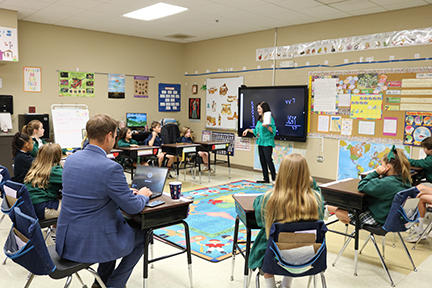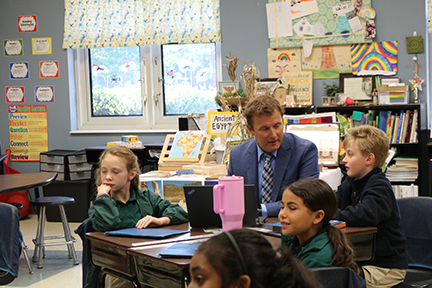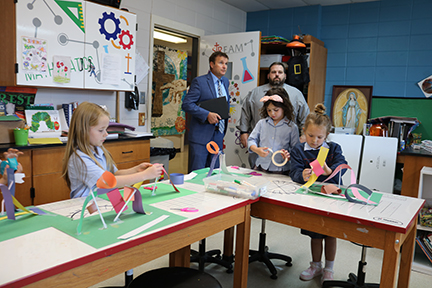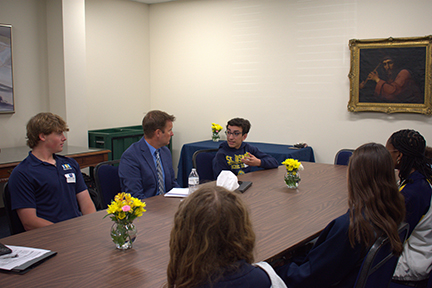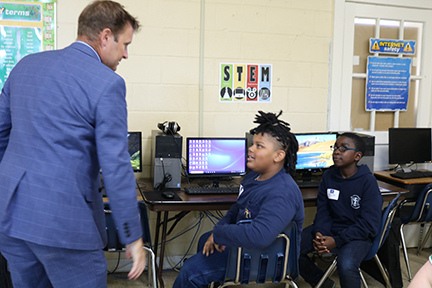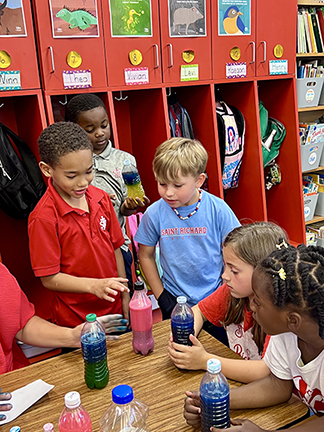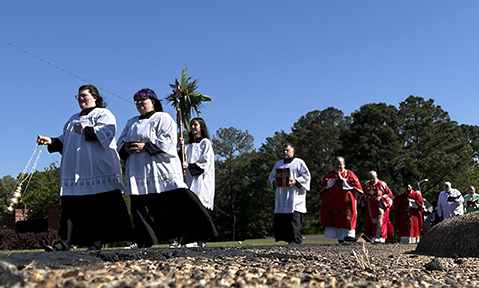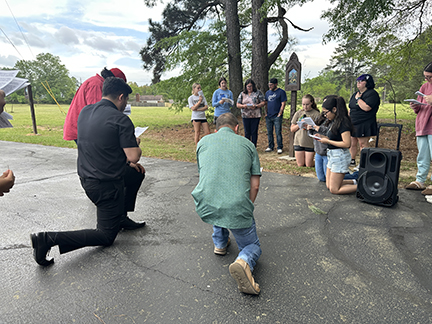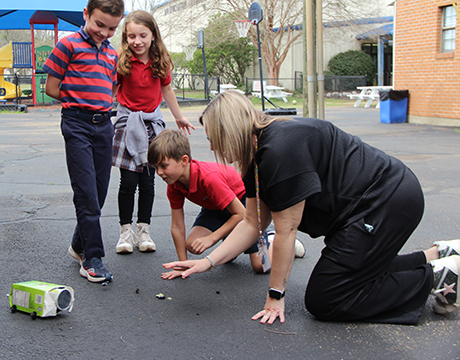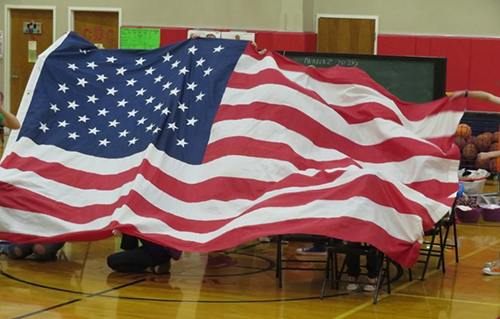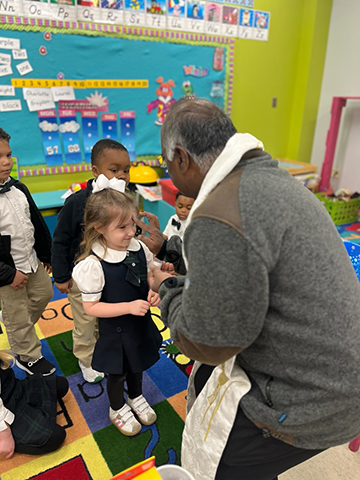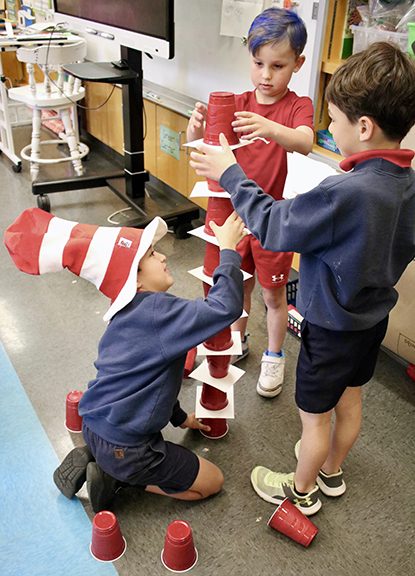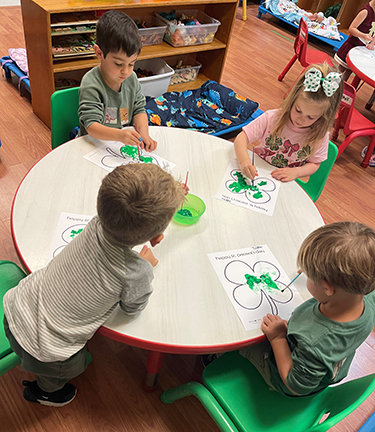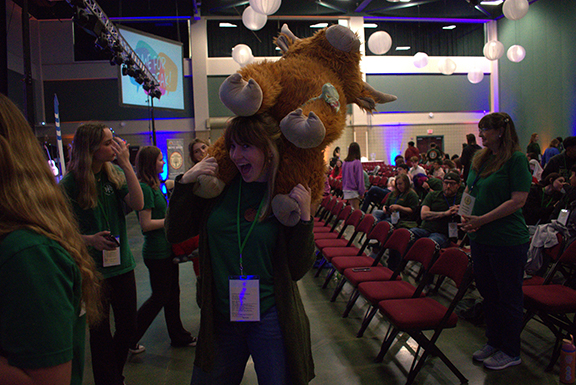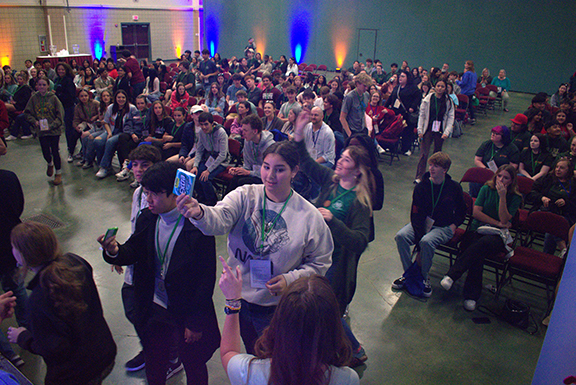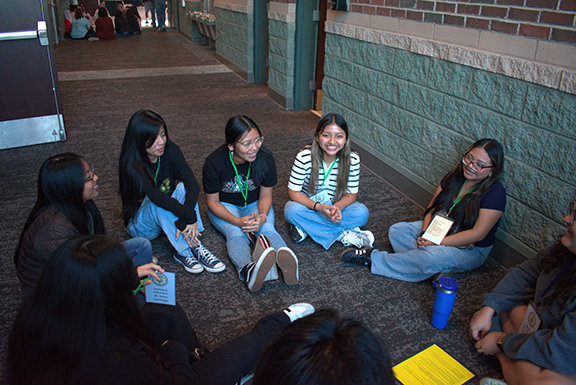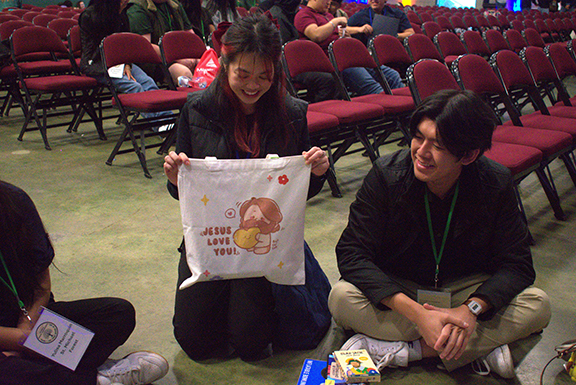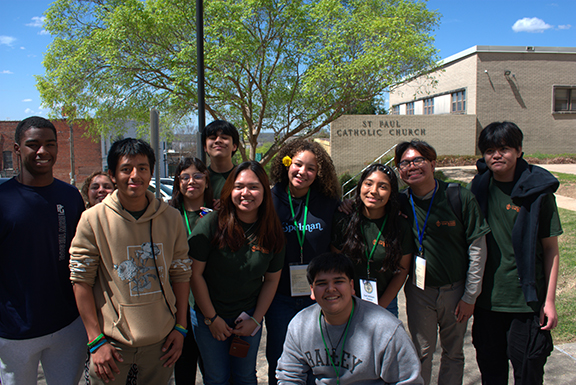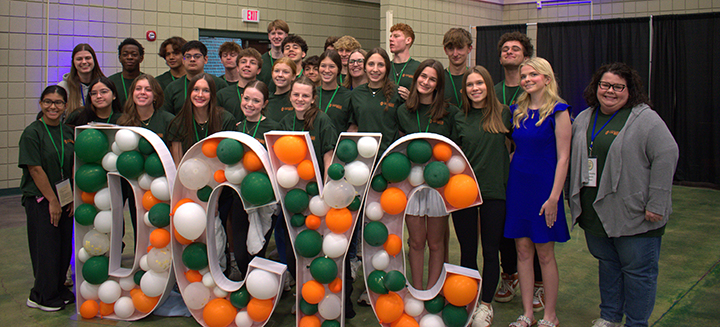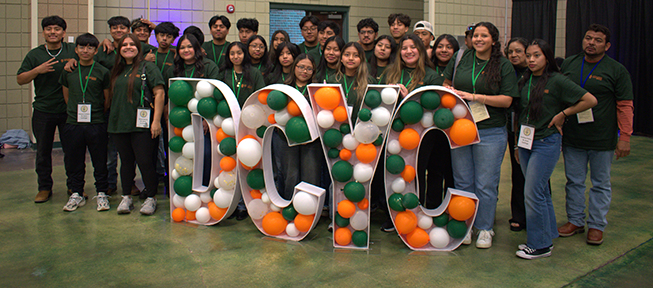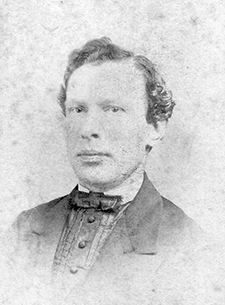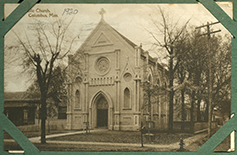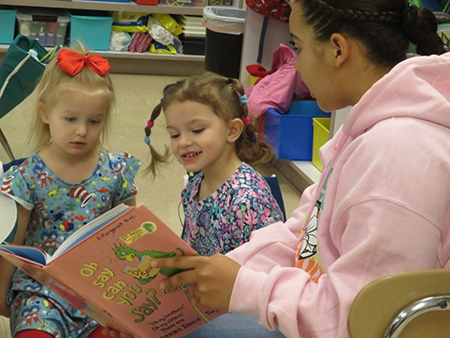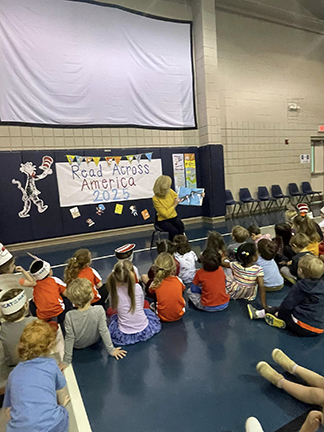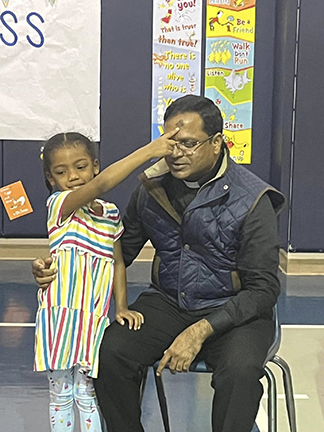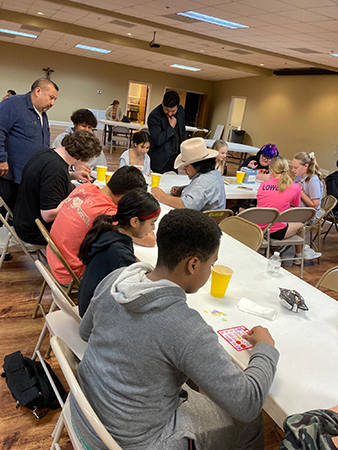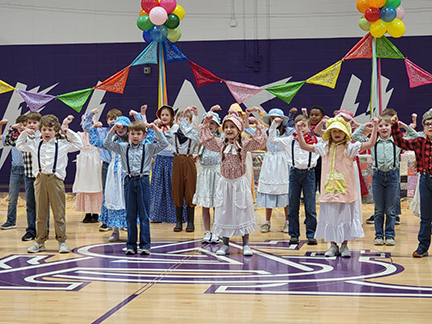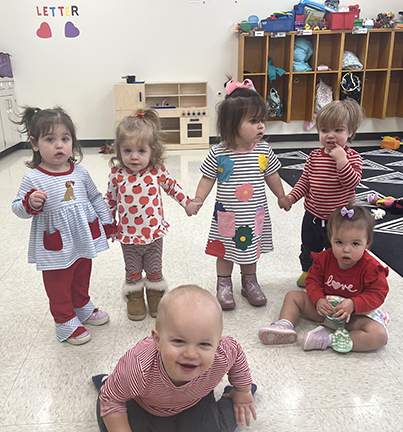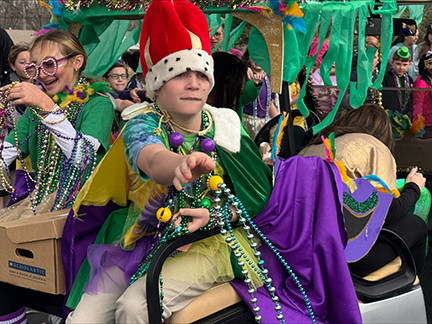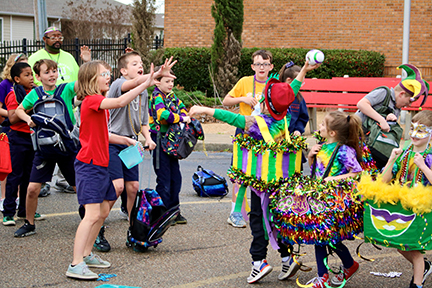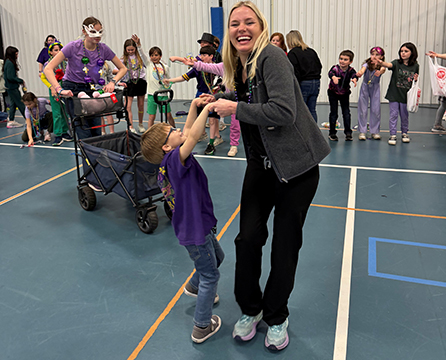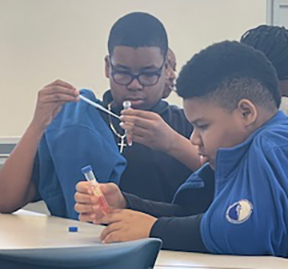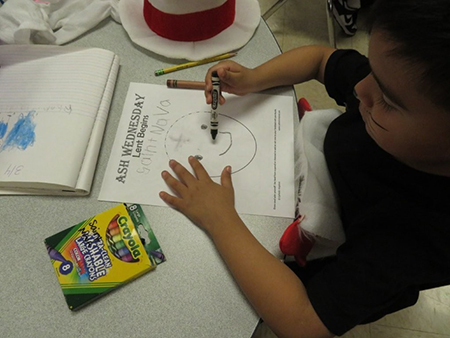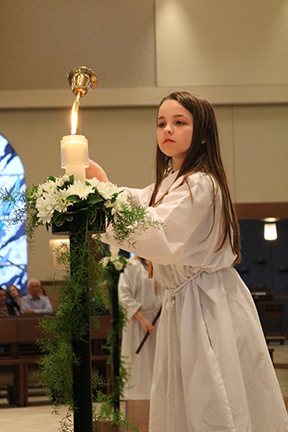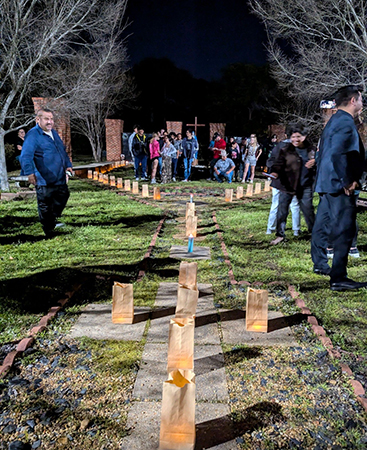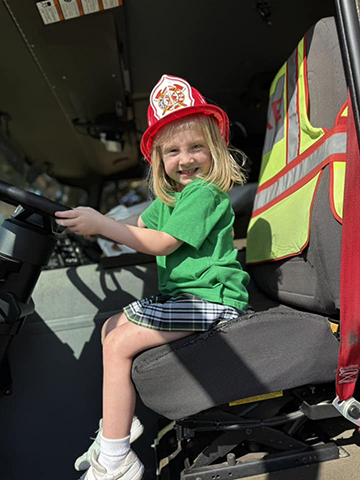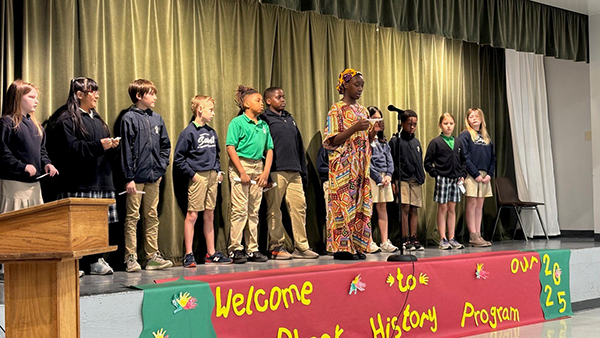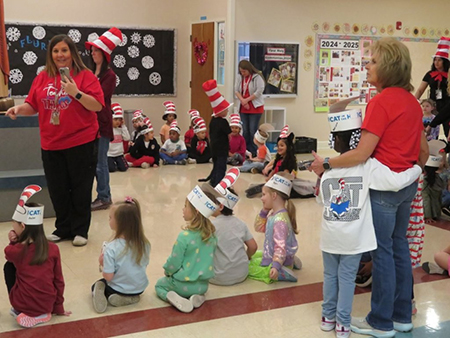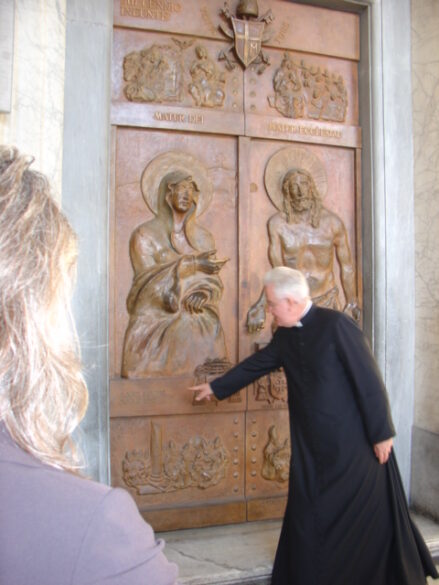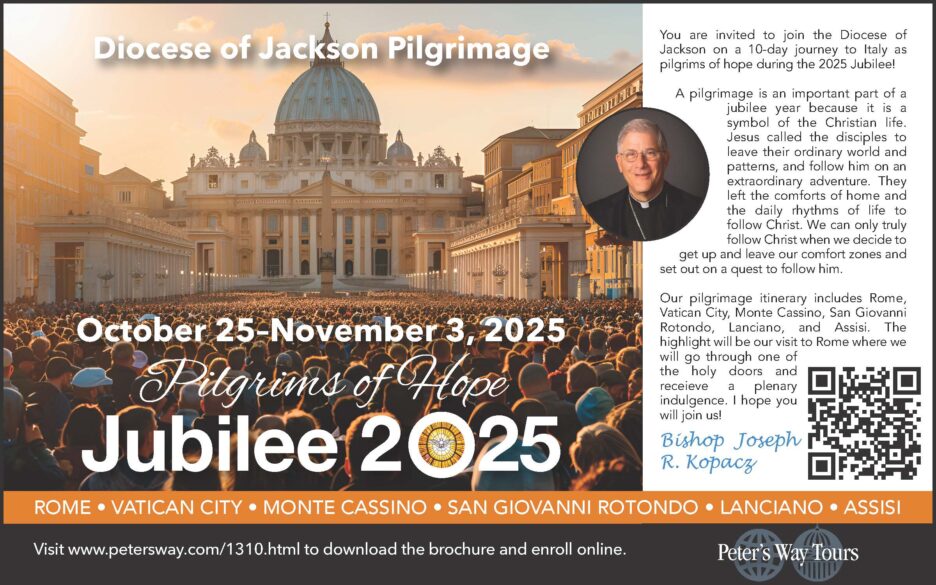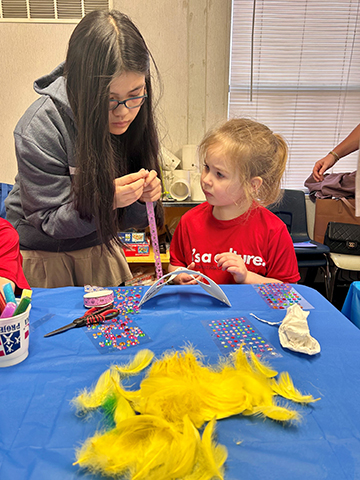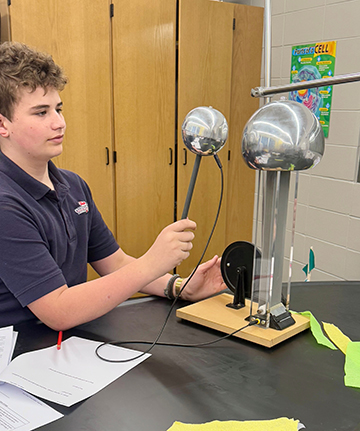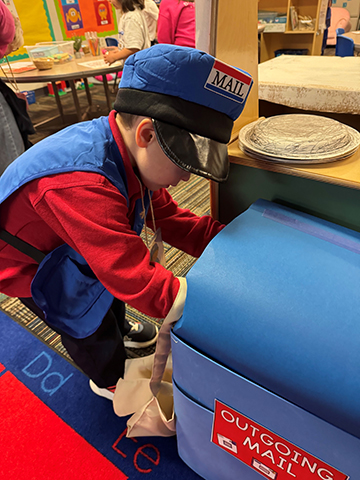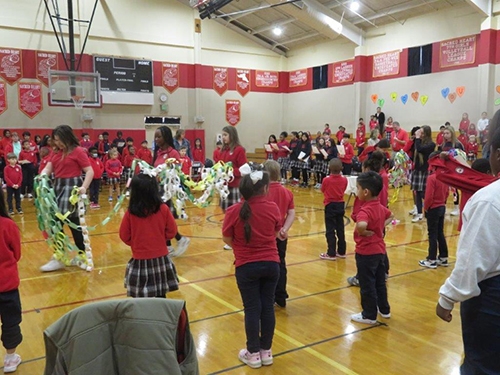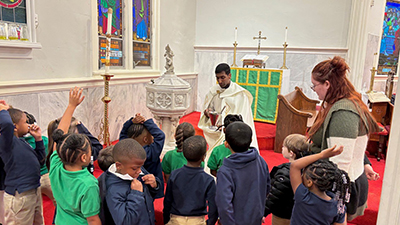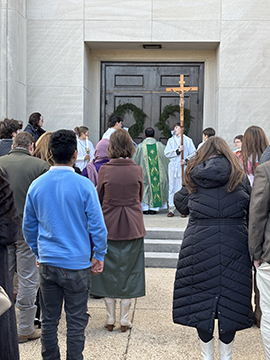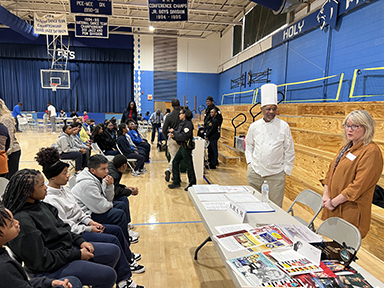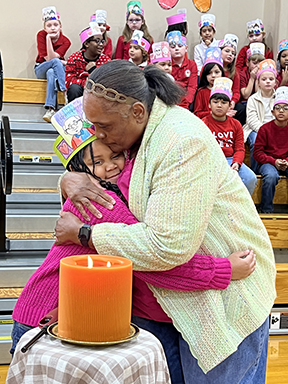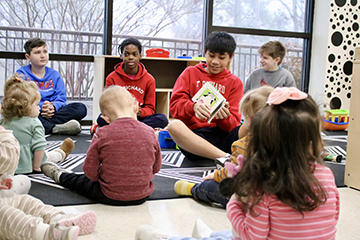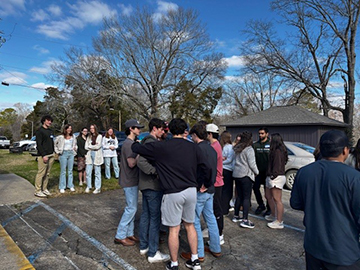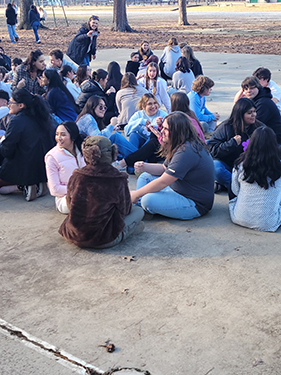By Cindy Wooden
VATICAN CITY – Pope Francis, who died April 21 at the age of 88, gave new energy to millions of Catholics – and caused concern for some – as he transformed the image of the papacy into a pastoral ministry based on personal encounters and strong convictions about poverty, mission and dialogue.
U.S. Cardinal Kevin J. Farrell, chamberlain of the Holy Roman Church, announced that Pope Francis had died at 7:35 a.m.
“His whole life was dedicated to the service of the Lord and his church,” Cardinal Farrell said in a video announcement broadcast from the chapel of the Domus Sanctae Marthae, where Pope Francis lived.
His gestures – from tenderly embracing the sick to repeatedly visiting prisoners – touched millions of hearts. But controversy raged over his denunciations of the excesses of unbridled capitalism, his warnings about the human contributions to climate change and his insistence on accompanying, not judging, gay people.
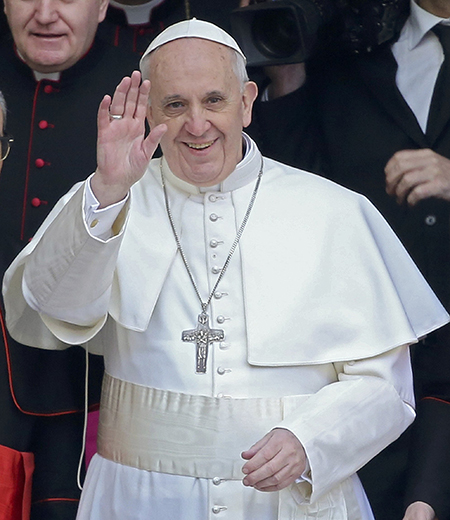
With bronchitis and difficulty breathing, Pope Francis was admitted to Rome’s Gemelli hospital Feb. 14. He was diagnosed with double pneumonia and a complex infection. He had returned to the Vatican March 23 to continue his convalescence.
God’s mercy was a constant theme in Pope Francis’ preaching and was so central to his vision of what the church’s ministry must embody that he proclaimed an extraordinary Holy Year of Mercy for Dec. 8, 2015-Nov. 20, 2016.
Elected March 13, 2013, Pope Francis was the first pope in history to come from the Southern Hemisphere, the first non-European to be elected in almost 1,300 years and the first Jesuit to serve as successor to St. Peter.
In the first three years of his papacy, he published three major documents: “Evangelii Gaudium” (“The Joy of the Gospel”), a detailed vision of the program for his papacy and his vision for the church – particularly the church’s outreach and its response to challenges posed by secular culture; “Laudato Si’, on Care for Our Common Home,” on the environment; and “Amoris Laetitia” (“The Joy of Love”), his reflections on the discussions of the synods of bishops on the family in 2014 and 2015.
Holiness was the topic of his March 2018 apostolic exhortation, “Gaudete et Exsultate” (“Rejoice and Be Glad”) in which he insisted being holy is not boring or impossible, and that it grows through small, daily gestures and acts of loving kindness.
Following in the footsteps of his predecessors, Pope Francis was an untiring voice for peace, urging an end to armed conflict, supporting dialogue and encouraging reconciliation. The pope described Russia’s invasion of Ukraine as “madness” and called on the world’s bishops to join him in consecrating Ukraine and Russia to the Immaculate Heart of Mary. When Hamas militants attacked communities in Israel, killing scores of people and taking more than 200 people hostage in late 2023, and Israel retaliated by attacking Gaza, Pope Francis made repeated appeals for the return of hostages, a ceasefire to deliver humanitarian aid, and a real commitment to a negotiated peace.
Promoting peace, solidarity and respect for the Earth, the pope insisted people needed to recognize each other as brothers and sisters and issued an encyclical about that, “Fratelli Tutti, on Fraternity and Social Friendship.” He signed the text at the tomb of St. Francis of Assisi on the saint’s feast day, Oct. 4, 2020.
Pope Francis spent much of the first nine years of his pontificate pursuing two ambitious projects: revitalizing the church’s efforts at evangelization – constantly urging outreach rather than a preoccupation with internal church affairs – and reforming the central administration of the Vatican, emphasizing its role of assisting bishops around the world rather than dictating policy to them.
On March 19, 2022, the ninth anniversary of the inauguration of his papacy, he finally promulgated “Praedicate Evangelium” (“Preach the Gospel”), his complete restructuring of the Roma Curia, highlighting its mission to serve the church’s evangelization efforts at all levels.
His simple lifestyle, which included his decision not to live in the Apostolic Palace and his choice of riding around Rome in a small Fiat or Ford instead of a Mercedes sedan, sent a message of austerity to Vatican officials and clergy throughout the church. He reinforced the message with frequent admonitions about the Gospel demands and evangelical witness of poverty and simplicity.
Although he repeatedly said he did not like to travel, he made 47 foreign trips, taking his message of Gospel joy to North and South America, Europe, Africa and Asia.
Jorge Mario Bergoglio was born in Buenos Aires, Argentina’s capital city, Dec. 17, 1936. He earned a chemical technician’s diploma from his high school and entered the Jesuit novitiate in March 1958. After studying liberal arts in Santiago, Chile, he returned to Argentina and earned his licentiate in philosophy from the Colegio San Jose in San Miguel.
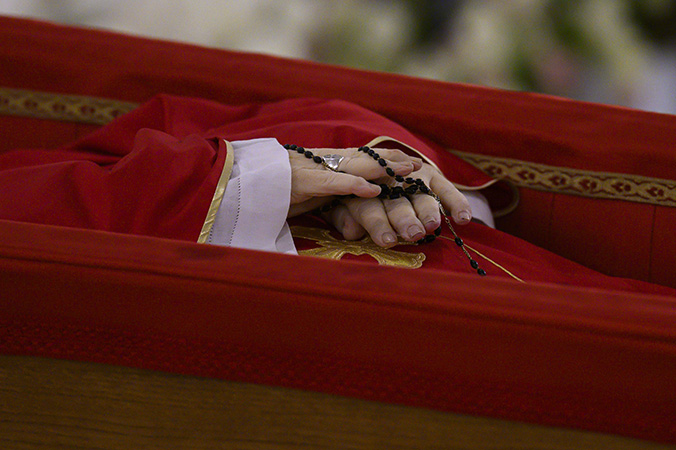
He was ordained a priest Dec. 13, 1969, and after his perpetual profession as a Jesuit in 1973, he became master of novices at the Seminary of Villa Barilari in San Miguel. Later that same year, he was appointed superior of the Jesuit province of Argentina, a role in which by his own account he proved a divisive figure because of an “authoritarian and quick manner of making decisions.”
In May 1992, Father Bergoglio was named an auxiliary bishop of the Archdiocese of Buenos Aires. He was appointed coadjutor archbishop five years later and became archbishop of Buenos Aires in 1998; Pope John Paul II named him to the College of Cardinals in 2001.
As leader of an archdiocese with more than 2.5 million Catholics, Cardinal Bergoglio strove to be close to the people. He rode the bus, visited the poor, lived in a simple apartment and cooked his own meals.
His international reputation was enhanced by his work at the 2007 assembly of the Latin American bishops’ council, CELAM, and particularly by his role as head of the committee that drafted the gathering’s final document on reforming and reinvigorating the church’s evangelizing efforts on the continent.
Cardinal Bergoglio was a known and respected figure within the College of Cardinals, so much so that no one disputed a respected Italian journal’s report that he received the second-highest number of votes on all four ballots cast in the 2005 conclave that elected Pope Benedict XVI.
Eight years later, Pope Benedict retired. At the cardinals’ meetings prior to the 2013 conclave to elect his successor, the need to reform the Vatican bureaucracy was a common theme of concern.
Addressing the gathering, Cardinal Bergoglio warned against “self-referentiality and a kind of theological narcissism” in the church and argued the next pope “must be a man who, from the contemplation and adoration of Jesus Christ, helps the church to go out to the existential peripheries” to spread the Gospel.
His election March 13 came on the second day of the conclave, on its fifth ballot. He chose the name Francis to honor St. Francis of Assisi, “the man of poverty, the man of peace, the man who loves and protects creation,” he said.
“Go out” was Pope Francis’ constant plea to every Catholic, from curial cardinals to the people in the pews. More than once, he told people that while the Bible presents Jesus as knocking at the door of people’s hearts to get in, today Jesus is knocking at the doors of parish churches trying to get out and among the people.
But he faced criticism for what many saw as a lack of consistency in dealing forcefully with the clerical sexual abuse crisis, especially when it came to holding bishops accountable for handling allegations and removing priests credibly accused of abuse.
And while his pontificate marked major progress in the Vatican’s attempts to reach an agreement with China’s communist government on the appointment of Catholic bishops, a provisional accord signed in September 2018, and renewed in 2020, 2022 and 2024, was denounced by critics as a betrayal of Catholics who risked their lives for refusing any cooperation with the communists.
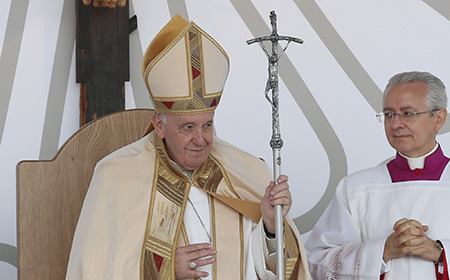
Like his predecessors, Pope Francis was a strong defender of the sacredness of human life. Meeting Catholic physicians in November 2014, for example, he insisted that in “the light of faith and the light of correct reason, human life is always sacred and always of ‘quality.’ There is no human life that is more sacred than another” and no “human life qualitatively more significant than another.”
For Pope Francis, helping the defenseless also meant paying special attention to prisoners, victims of war and, particularly, Christians and other religious minorities persecuted for their faith.
When Islamic State forces and other terrorist groups began specifically targeting Christians and other religious minorities in Syria and Iraq, and later in North Africa, Pope Francis demanded the international community act.
He frequently cited figures that the number of Christian martyrs is greater today than in the first centuries of Christianity, and he insisted the international community cannot “look the other way.”

